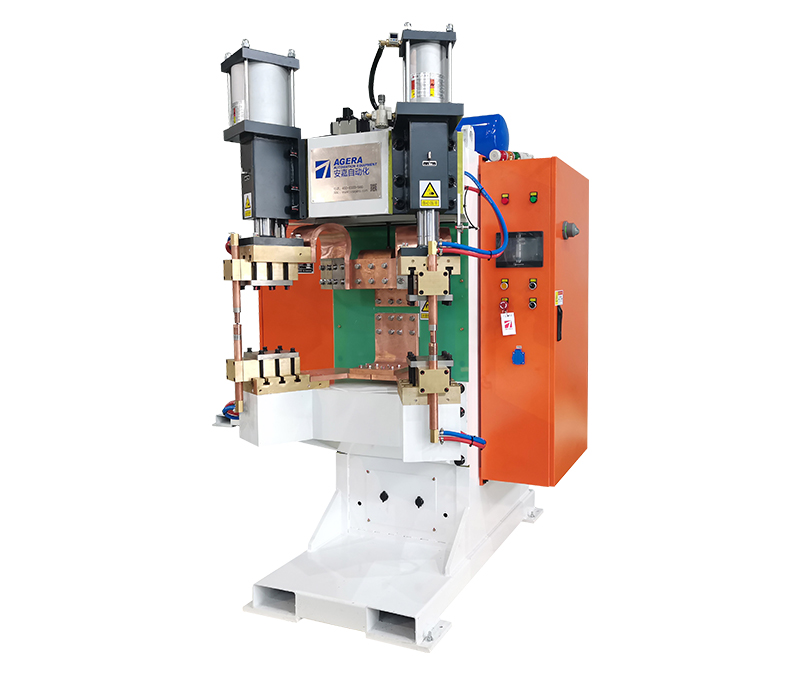How to Solve the Smoke and Dust Issue in Nut Spot Welding Machines?
In industrial settings, nut spot welding machines are indispensable tools for joining metal components efficiently. However, these machines often produce smoke and dust, which can pose health and environmental concerns. In this article, we will explore effective solutions to mitigate the smoke and dust problems associated with nut spot welding machines.
- Optimize Welding Parameters: Adjusting welding parameters such as current, voltage, and electrode force can significantly reduce smoke and dust generation. Finding the right settings for the specific materials being welded is crucial.
- Use Welding Fume Extractors: Installing welding fume extractors near the welding point can capture and filter out the smoke and dust. These systems come in various sizes and types, making it possible to choose one that suits your workspace.
- Regular Maintenance: Keeping the welding machine clean and well-maintained can prevent the accumulation of dust and debris. Regularly replace consumables like electrodes and shanks to maintain optimal performance.
- Ventilation Systems: Proper ventilation in the welding area can help disperse smoke and dust. Combining general and local exhaust ventilation systems ensures a healthier working environment.
- Personal Protective Equipment (PPE): Ensure that workers wear appropriate PPE, such as respiratory protection masks and safety goggles, to minimize direct exposure to welding emissions.
- Substitute Materials: Consider using materials with lower emissions when possible. Some materials produce fewer fumes during the welding process.
- Worker Training: Train employees on safe welding practices and the potential hazards associated with smoke and dust. Educated workers are more likely to take necessary precautions.
- Welding in Enclosed Spaces: Whenever feasible, conduct welding operations in enclosed spaces equipped with effective ventilation systems to minimize the release of smoke and dust into the surrounding environment.
- Compliance with Regulations: Stay updated on local and national regulations regarding air quality and workplace safety. Ensure that your welding processes meet all relevant standards.
- Monitoring and Evaluation: Regularly monitor air quality and employee health. This helps identify any issues promptly and ensures that the implemented solutions are effective.
In conclusion, addressing the smoke and dust problems associated with nut spot welding machines involves a combination of optimizing welding parameters, using appropriate equipment, maintaining a clean workspace, and prioritizing worker safety. By implementing these solutions, you can create a healthier and more environmentally friendly welding environment.
